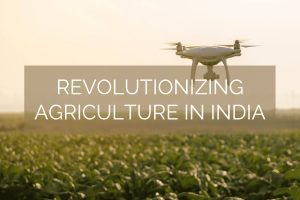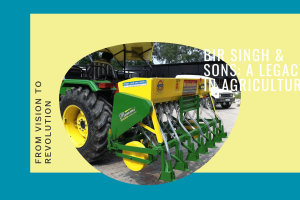The Integrated Farming System (IFS) is an agriculture-based approach that harmonizes diverse farming activities, including crop production, livestock, fishery, forestry, and horticulture, into a unified and sustainable system. With India’s agrarian economy facing numerous challenges such as fragmented landholdings, soil degradation, water scarcity, and climate change, IFS has emerged as a practical solution for improving productivity, profitability, and ecological balance. This article explores the IFS concept, its relevance in India, key components, and potential for transforming rural livelihoods.
1. Understanding the Integrated Farming System (IFS)
The IFS model seeks to synergize different farming components within a single farm ecosystem. By integrating various enterprises (like crops, livestock, and fishery), IFS aims to make optimal use of resources, enhance income diversity, reduce risks, and lower dependency on external inputs. This approach contrasts with traditional mono-cropping, providing more resilience against economic and environmental fluctuations.
2. Relevance of IFS in the Indian Context
- Agricultural Diversification Needs: India’s heavy reliance on cereal production often results in nutrient-deficient diets and economic instability. IFS encourages farmers to diversify their produce, enhancing food security and income stability.
- Limited Landholdings: In India, nearly 86% of farmers are small or marginal, holding less than two hectares. IFS allows these farmers to maximize the productivity of limited resources by incorporating complementary farming activities.
- Environmental Concerns: IFS aligns well with sustainable agriculture practices, addressing soil fertility, water conservation, and biodiversity preservation. It reduces dependency on chemical inputs, thereby limiting environmental pollution.
- Climate Change Mitigation: Climate-resilient and adaptive, IFS reduces risks by diversifying farm output, which is particularly important in regions experiencing irregular rainfall and temperature shifts due to climate change.
3. Key Components of an Integrated Farming System in India
IFS incorporates a range of activities, each tailored to complement the others in order to optimize resource use. Here are the primary components commonly found in IFS systems across India:
- Crop Production: Core to IFS, crops are selected based on local climate, soil, and water availability. High-yielding and drought-resistant varieties are often preferred. Multiple cropping (such as intercropping, mixed cropping, and relay cropping) further increases productivity and minimizes pest risks.
- Livestock Farming: Including dairy cattle, poultry, goats, or sheep adds a source of income and enhances nutrient cycling on the farm. Animal manure serves as a natural fertilizer, while livestock feed can be derived from farm residues.
- Agroforestry: Planting trees and shrubs around the farm provides multiple benefits: they offer shade, prevent soil erosion, add organic matter, and can yield fruit or timber as additional income sources.
- Horticulture: Growing fruits and vegetables on a small scale diversifies income and food sources. Kitchen gardens are a common horticultural practice, providing nutrient-rich food and lowering household expenses.
- Fishery and Aquaculture: Integrating fish ponds with crop or livestock farming allows nutrient-rich water from the pond to be used for irrigation, boosting soil fertility while adding a valuable source of protein for the family.
- Beekeeping and Vermiculture: Beekeeping not only generates income but also aids in crop pollination. Vermiculture, the practice of rearing earthworms, is an effective organic waste management tool that produces high-quality compost for crops.
4. Benefits of the Integrated Farming System for Indian Farmers
- Enhanced Income Stability: IFS diversifies income sources, reducing reliance on a single crop or product. Farmers can earn year-round from various farm activities, securing cash flow even if one component fails.
- Increased Resource Efficiency: Through the recycling of resources, such as using livestock manure as fertilizer or crop residues as feed, IFS minimizes waste, enhances resource efficiency, and lowers input costs.
- Reduced Environmental Impact: IFS reduces reliance on chemical fertilizers and pesticides, lowers greenhouse gas emissions, conserves water, and maintains soil health.
- Improved Nutritional Security: By producing a variety of crops and livestock products, IFS provides households with balanced diets, contributing to food and nutritional security.
- Climate Resilience: IFS minimizes vulnerability to weather extremes, making it a reliable option for regions affected by unpredictable climatic conditions.
5. Implementing the Integrated Farming System: Challenges and Solutions
Challenges
- Knowledge and Skill Gaps: Farmers need training in multiple disciplines—agriculture, animal husbandry, aquaculture, etc.—which can be a barrier in regions with limited access to agricultural extension services.
- Initial Investment Costs: Transitioning to IFS may require an initial investment in infrastructure, such as building fish ponds, animal shelters, or setting up beekeeping. For small farmers, these costs can be prohibitive without financial assistance.
- Land Fragmentation: Small landholdings can limit the scope of IFS activities. In some areas, land consolidation initiatives or cooperative approaches might be necessary to fully implement IFS.
- Policy and Institutional Support: Lack of specific policy frameworks for IFS adoption and inadequate access to credit facilities, subsidies, and insurance can slow down its adoption.
Solutions
- Capacity Building: Training programs organized by agricultural universities, NGOs, and government bodies can equip farmers with the skills needed for IFS. Extension services should be expanded to rural areas for more accessible support.
- Government Subsidies and Credit Schemes: Providing low-interest loans, subsidies on infrastructure, and insurance support will encourage more farmers to adopt IFS practices.
- Promotion of Farmer Producer Organizations (FPOs): FPOs can enable farmers to pool resources, access larger markets, and share infrastructure costs, making IFS more viable on small landholdings.
- Research and Development Support: Enhanced R&D on IFS-related technologies (e.g., improved livestock breeds, drought-resistant crops) can further boost productivity and adaptability to different agro-climatic zones.
6. Government Initiatives Supporting IFS in India
Several Indian government schemes and policies align with the principles of IFS, including:
- National Mission for Sustainable Agriculture (NMSA): Aims to promote sustainable agriculture practices, resource conservation, and climate-resilient farming, all of which are integral to IFS.
- Paramparagat Krishi Vikas Yojana (PKVY): Encourages organic farming and sustainable agriculture, focusing on reducing chemical dependency and enhancing soil health, crucial to the IFS approach.
- Pradhan Mantri Krishi Sinchayee Yojana (PMKSY): Improves irrigation infrastructure and water management, essential for integrated systems like agroforestry, fishery, and crop production.
7. Case Studies of Successful IFS Models in India
- Tamil Nadu: Many farms in Tamil Nadu have integrated crops, livestock, poultry, and fish ponds with impressive results in income diversification and water conservation.
- Punjab and Haryana: With groundwater levels depleting, farmers in these states are turning to IFS to incorporate water-saving methods and agroforestry practices alongside conventional farming.
- Northeast India: In states like Assam and Meghalaya, traditional jhum (shifting) cultivation is being replaced by integrated systems combining horticulture, fishery, and piggery, leading to more sustainable land use.
8. Future Prospects of Integrated Farming System in India
Given the economic and environmental challenges faced by the agricultural sector, IFS presents a viable solution that aligns with the goals of sustainable development. With further policy support, research initiatives, and increased awareness among farmers, IFS has the potential to transform Indian agriculture. Emphasizing skill development, incentivizing environmentally friendly practices, and enhancing access to financial resources will play a critical role in expanding the reach of IFS across India.
Conclusion
The Integrated Farming System represents a holistic approach to agriculture that aligns with India’s goal of achieving sustainable, inclusive, and resilient agricultural growth. By promoting biodiversity, maximizing resource use, and diversifying income sources, IFS not only benefits small-scale farmers but also contributes to the nation’s food and nutritional security. With targeted policy support, greater awareness, and institutional frameworks, IFS could very well become the cornerstone of India’s agricultural future, creating a more sustainable and resilient rural economy.












Add Comment